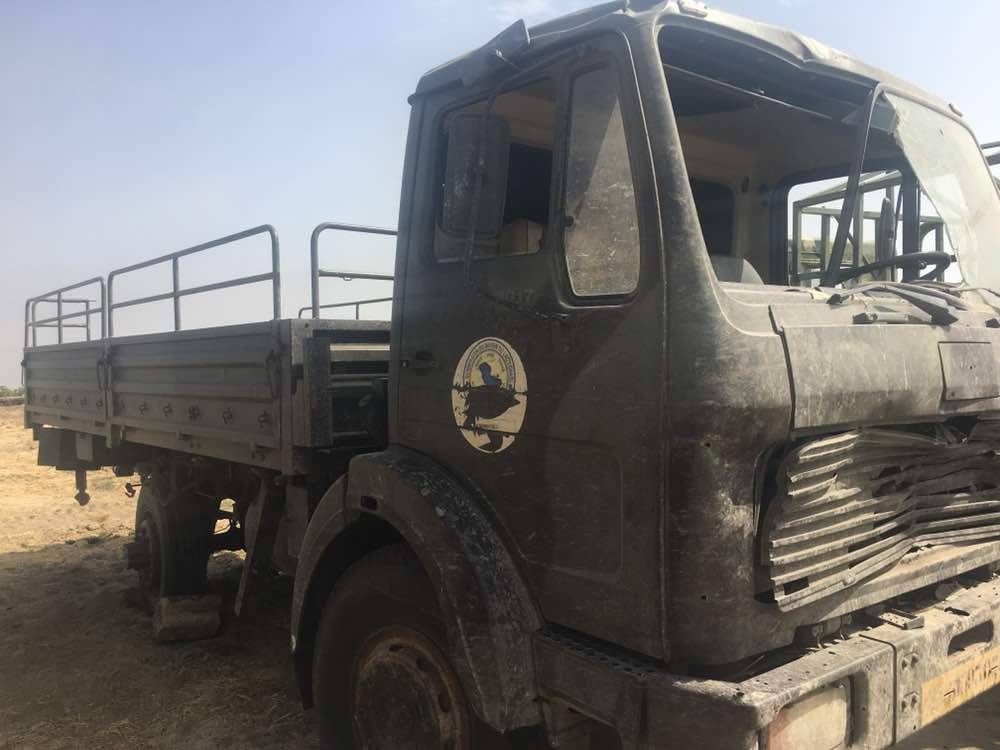
What lessons can be drawn from the multiple facets of the interaction between the political, military and humanitarian factors in conflict situations? How should an agency like mine position itself in and influence the ongoing complex developments?
I hope I have demonstrated that, for better or worse, humanitarian, political and security problems and their solutions are linked and influence each other. Let me therefore first reiterate my plea for better integrated approaches to international crisis management. Humanitarian action, far from being solely a question of international charity, can support peace and reconciliation. In turn, it depends on political and sometimes military action to end human suffering, both in the short term during conflict and in the long term to move closer to peace. Humanitarian action, peace making and the willingness to address security issues are interlinked. In the absence of an overarching international structure of checks and balances, they can together generate the synergy necessary to at least prevent chaos from spreading in a world which is increasingly moving at very different speeds. On both moral and practical grounds we cannot afford to let local wounds fester with the band aid treatment of the past, from which we may be fortunately moving away.
My second point is the need for further re-thinking of the concept of threats to international peace and security as a basis for collective action. If the calamities in former Yugoslavia and the African Great Lakes region have demonstrated one thing, it is the frequent indivisibility of peace between and within states, but also between international and human security. In this regard I deeply appreciate the active interest shown in recent years by the UN Security Council in humanitarian issues, even when their cross-boundary impact on international peace and security has not been immediate. For me, this constitutes enormous progress to the realities of today. It must be further explored and consolidated.
Third, I wish to emphasize that recognition of the dependency as well as potential of humanitarian action should not make it subservient to interests in the political and security realm. Humanitarian action should be used neither as a fig leaf nor as a scapegoat. Its integrity must be preserved: its strength but also its weaknesses should be fully acknowledged in political decision making. While our humanitarian presence can have a moderating effect on receptive authorities, humanitarian agencies cannot provide protection against virulent attacks on the security of people, and it is this protection which, although needed most, remains in short supply. Preserving the integrity of humanitarian action means recognizing fully the impartiality with which it focuses on the material and protection needs of the victims on either side of a conflict. It means distinguishing humanitarian impartiality from the question of political neutrality, a distinction which may pose serious practical challenges in integrated operations and, for ourselves, painful moral dilemmas when dealing with heinous acts. It means recognizing humanitarian impartiality without hiding behind it because of reluctance to choose sides against unacceptable behaviour or objectives. It means drawing clear lines when for the sake of negotiations on peace and stability certain human rights and humanitarian interests may be sacrificed. And it means that humanitarian actors should not be left to muddle with unresolved political questions in the transition from war to peace. I realize that these are difficult issues given the realities and dilemmas with which we have to work, but I am convinced that they must be tackled in the interest of effective humanitarian action and peace.
The fourth and last point I should like to make today is directed at the institutional level and concerns the future of the UN. The ongoing reform process offers a crucial opportunity to clearly define the UN's role, including its humanitarian function as complementary to its essential role for peace and security. Most importantly, we need to define an appropriate division of responsibility between the world organization and its member states. While I hope for a strengthening of the UN mission for the political settlement of conflicts, this task needs to be better synchronized with diplomatic initiatives and the carrot and stick potential of member states, regional political actors and economic organizations. Too often there has been easily exploitable confusion rather than synergy. If the world's leading nations fully support the UN's essential role for peace - rather than engaging themselves in areas where their strategic interests are thin, the organization must in my view be equipped with a rapid military deployment capability. Such forces should not only be prepared to provide protection and to support the delivery of assistance in mega-crises, but will hopefully also be mandated to separate and disarm armed elements in civilian refugee camps. It should provide the necessary leverage to contain elements that obstruct peaceful settlement as well as to support those that opt for such settlement.
Let me conclude by saying that I believe that humanitarian action has an important role to play in the comprehensive strategy for peace that we need so badly. Humanitarian action focuses on protecting human beings. Without assuring human security, peace and prosperity cannot endure very long. Political and military strategy must fully take account of the human dimensions of its action. Let me thank all of you who represent the strategic thinking community for the interest you have shown in my talk today. For the victims of persecution and conflict, the engagement of think tanks like yours is indispensable.
It is well
Downvoting a post can decrease pending rewards and make it less visible. Common reasons:
Submit
Your tags should be..... Management writing stach Nigeria uyo
Downvoting a post can decrease pending rewards and make it less visible. Common reasons:
Submit
And please add enough pictures to make attractive
Downvoting a post can decrease pending rewards and make it less visible. Common reasons:
Submit